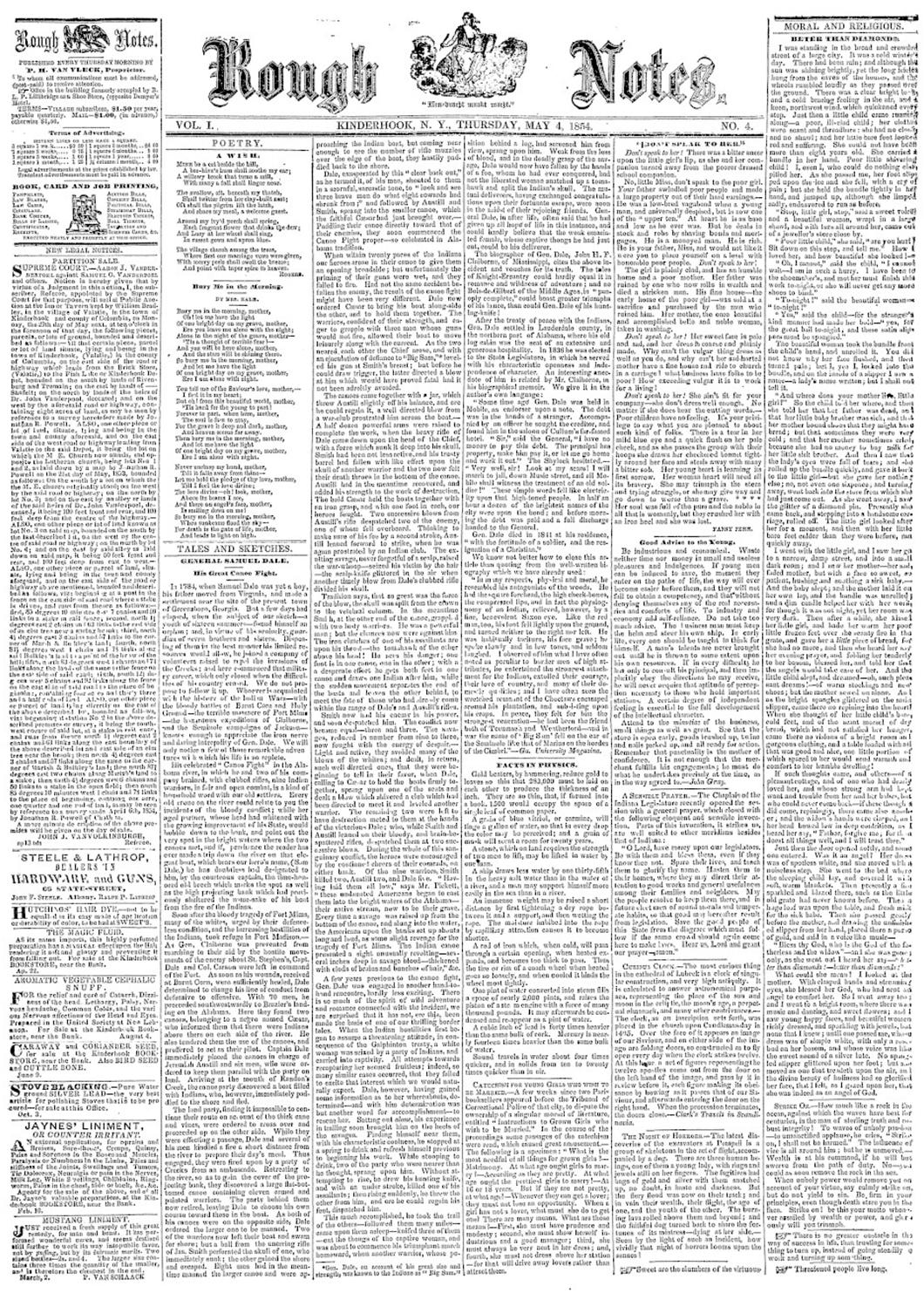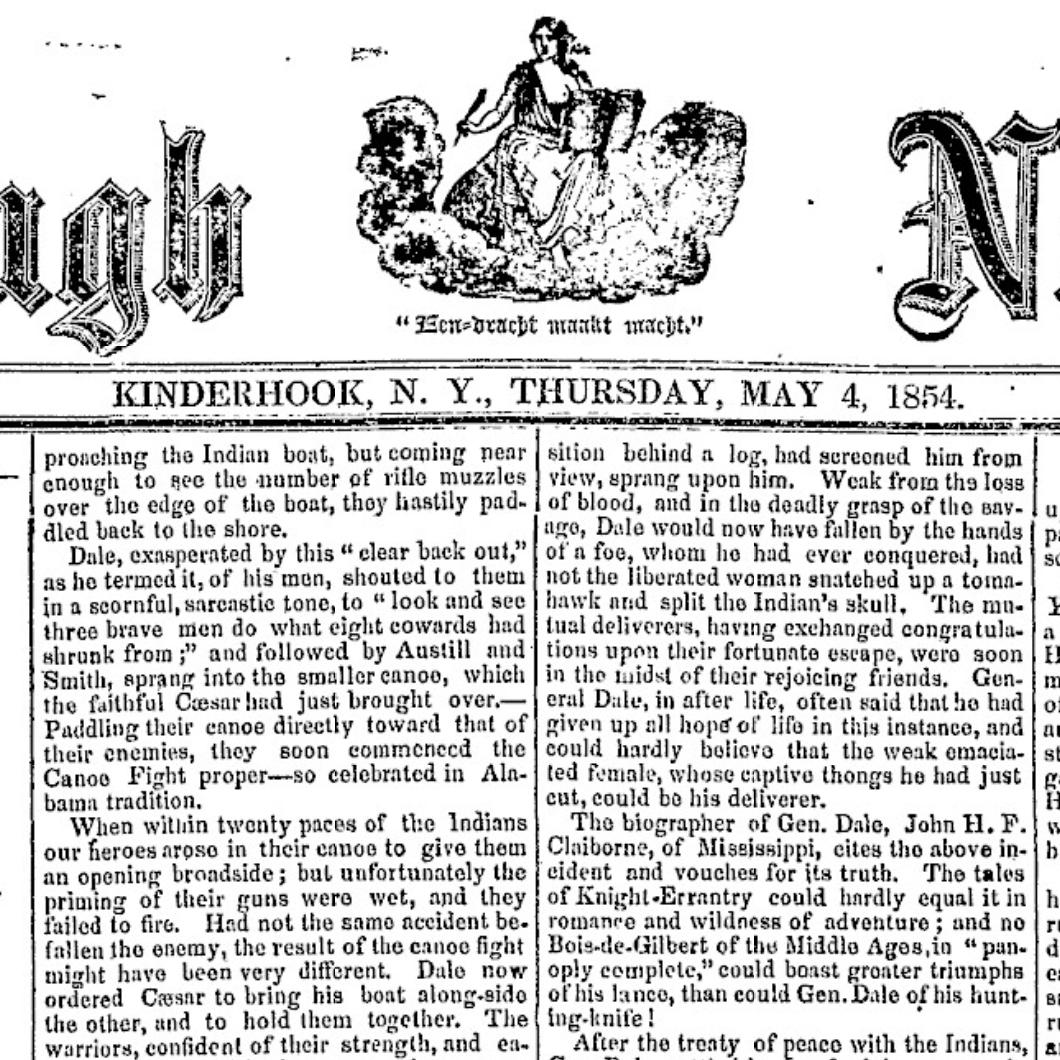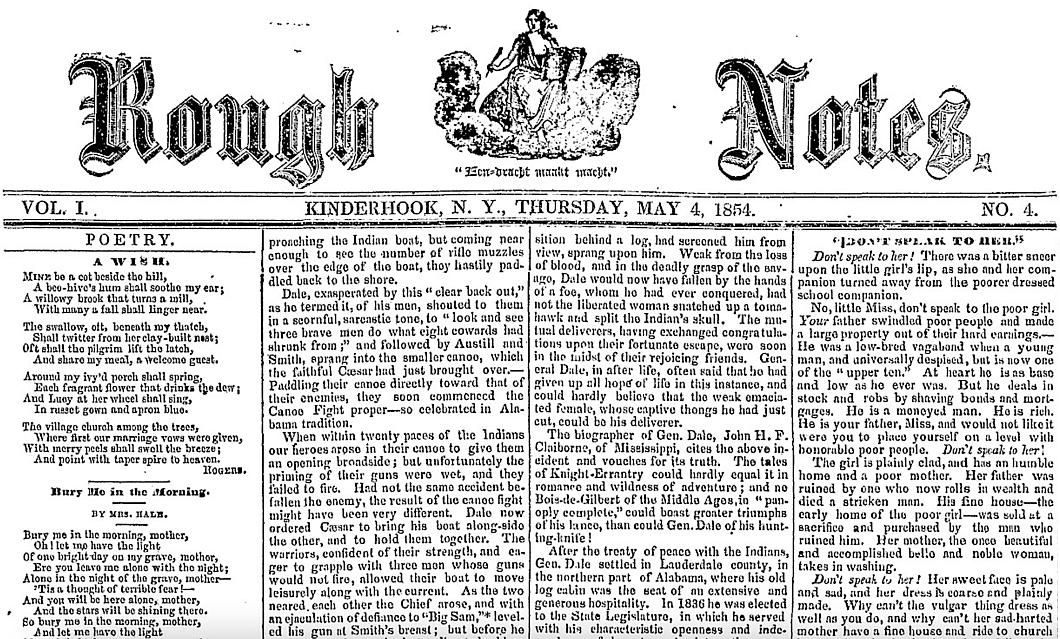
About Andrew Cusack
 Writer, web designer, etc.; born in New York; educated in Argentina, Scotland, and South Africa; now based in London.
Writer, web designer, etc.; born in New York; educated in Argentina, Scotland, and South Africa; now based in London. read more
News
Blogs
Reviews & Periodicals
Arts & Design
World
France
Mitteleuropa
Knickerbockers
Argentina
The Levant
Africa
Cape of Good Hope
Netherlands
Scandinavia
Québec
India
Muscovy
Germany
Academica

Rough Notes of Kinderhook
Old Kinderhook is most famous for being the birthplace of the “Red Fox”, Martin van Buren — sometime inhabitant of London and later President of the United States.
He remains the only President who was not a native English speaker, and he spoke with a thick Dutch accent until the end of his days.
If legend is to be believed (and no evidence has been presented compelling us to do otherwise) the town is also the origin of the word “okay” or “O.K.” — for the “Old Kinderhook” clubs that sprung up to support van Buren’s bid for the White House.
Like many towns up and down the Hudson valley, Kinderhook had its own newspaper — originally named the Kinderhook Herald but which later took up the idiosyncratic name of Rough Notes.

As befits the newspaper of record of an old Dutch settlement, its banner bore the motto Een=dracht maakt macht, a Dutch translation of the old Latin motto of the Seven Provinces that means “Unity makes strength”.
These old and highly localised newspapers were once the chief source of information for people in the surrounding districts and one is pleasantly delighted by the sheer variety of the contents.
In addition to news, agricultural reports, poetry, and the moral and religious column there are reports of the meetings of Congress in Washington and the legislature in Albany, trials for murder, amusing notices from other newspapers in the New World, and news of battles and great events worldwide.
Thanks to the excellent New York State Historic Newspapers online archive you can virtually flip through the pages of this and numerous other periodicals.

Search
Instagram: @andcusack
Click here for my Instagram photos.Most Recent Posts
- Gellner’s Prague December 19, 2024
- Monsieur Bayrou December 18, 2024
- Dempsey Heiner, Art Critic December 17, 2024
- Vote AR December 16, 2024
- Articles of Note: 12 December 2024 December 12, 2024
Most Recent Comments
Book Wishlist
Monthly Archives
Categories



These early local newspapers tell us, as does so much else in these dreary days, that our ancestors were better than we are. 90% at least of the readership of these often flourishing publications were possessed of no more than what we would now call a high school education and many of those “high schools” managed to exist in one room school houses with one or two teachers, themselves hardly the product of Harvard or Yale.
And yet these farmers, tradesmen, blacksmiths and saloon owners could and did read articles of a complexity utterly foreign to the broadsheets of today. Yes, the prose is sometimes deliciously archaic, but it is still miles ahead of what the New York Times and the Washington Post deign to place before their ever decreasing number of readers today.
But perhaps their greatest value is that they are often the sole repository of information about their regions and its people. The genealogist and family historian will find in their pages not merely the dates of events like births, marriages and deaths, but. often, precious obituaries or life sketches where one learns not only of the events in the lives of our ancestors, prominent or not, but also endearing allusions to their character and appearance.
I recommend them to all those who still care something about, and are proud of, the people who made America what it was until very recently.
Long may their memories both flourish and inspire.